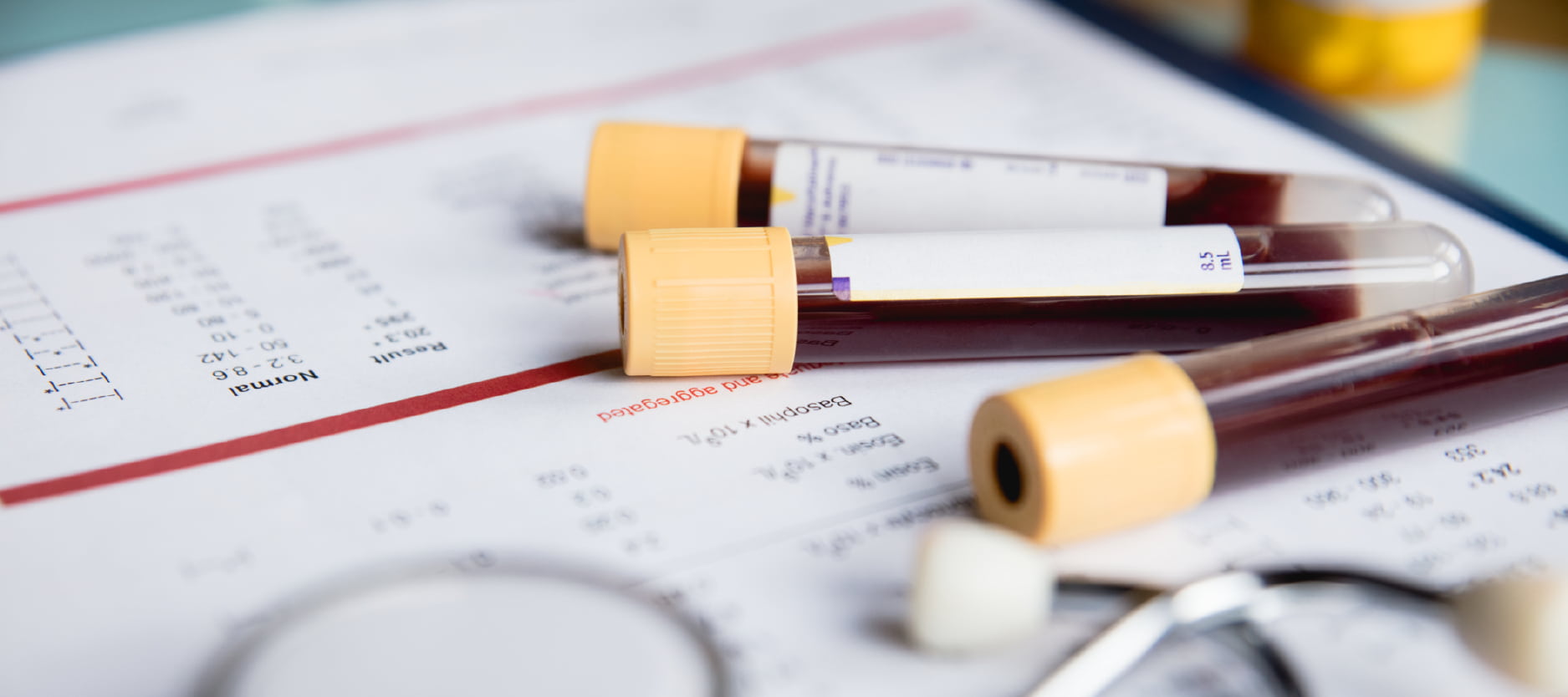What if a single test could help you predict your risk of early cardiovascular disease? For the one in five Americans with high lipoprotein(a) levels, a simple lipoprotein(a) test can do that.
Lipoproteins are lipids — specialized combinations of fats — that function as carrier molecules for cholesterol. You’ve probably heard of them before, although perhaps not by their official names.
There are two well-known classes of blood lipoproteins:
High-density lipoproteins (HDL)
HDLs transport cholesterol from other parts of the body towards the liver, where it is then removed.¹ This is why HDLs are sometimes called “good cholesterol.”
Low-density lipoprotein (LDL)
LDLs transport cholesterol to the body’s cells, which use it to make hormones, synthesize vitamin D and even aid digestion.²
When LDL levels in the blood are too high, it means there is too much cholesterol circulating in the body, increasing the risk of cardiac issues. LDLs are often referred to as “bad cholesterol”.
Why is too much cholesterol a problem?
Over time, excess cholesterol can combine with other molecules to form plaque on the inside of blood arteries, a health condition known as atherosclerosis. Plaque hardens the arteries and reduces the flow of nutrients and oxygen, which leads to poor cardiovascular health.
A buildup of plaque could also cause an arterial rupture and subsequent blood clot,³ further restricting or even blocking blood flow altogether and leading to heart attack or stroke.
What is lipoprotein(a)?
Lipoprotein(a) is a particle within LDLs that has been shown to increase the risk of plaque buildup within the arteries.⁴
Having higher levels of lipoprotein(a) is 80 to 90% genetically determined⁵ and is not influenced by diet, exercise or other interventions.⁶
What is a lipoprotein(a) blood test?
A lipoprotein(a) test is not a type of cholesterol test. Instead, it screens for high levels of the molecule within LDLs.
You may be more familiar with a lipid panel, the standard cholesterol test ordered by healthcare practitioners that usually measures two kinds of lipoproteins, namely HDL and LDL, as well as triglyceride levels and total cholesterol. imaware’s Baseline Heart Health Test falls into this category.
The lipoprotein(a) test isn’t as routine as a lipid panel. Usually it’s used after a person or first-degree relative has developed a cardiovascular medical condition while young, or has otherwise healthy cholesterol levels.
Why do I need a lipoprotein(a) test?
It’s estimated that one in five people worldwide⁷ have high levels of lipoprotein(a), which is a recognized factor for heart disease.
However, someone with high lipoprotein(a) levels might have perfectly normal cholesterol levels, and otherwise appear at low risk of heart disease — remember, age, fitness level and diet have little influence on lipoprotein(a).
Knowing your lipoprotein(a) levels can help you assess your heart disease risk, especially if you have younger family members with heart health issues or a family history of hypercholesterolemia (very high cholesterol).
How does a lipoprotein(a) test work?
Using a sample of blood, a lipoprotein(a) test screens only for the amount of this particle in the blood. The resulting blood test report will show whether or not your levels fall within a healthy range of lipoprotein(a) for the general population.
Your doctor may order a lipoprotein(a) test as part of a complete lipid panel blood test, which would also show triglyceride levels, LDL levels, HDL levels and total cholesterol.
Can I test for lipoprotein(a) at home?
Testing for lipoprotein(a) at home is as easy as collecting a small blood sample and mailing it to an accredited laboratory for analysis.
imaware’s at-home kit, for example, contains a hidden needle inside a lancet that takes a sample of blood from your fingertip (which is generally less painful than having blood drawn from a vein in your arm).
Are there any risks of at-home testing?
Other than a pin prick on your finger, there are virtually no risks to testing your lipoprotein(a) at home.
How can I prepare for the test?
If you’re taking a lipoprotein(a) test in-person at a doctor’s office or blood lab, you may be instructed to fast beforehand, depending on other lipid measurements your doctor might want to test for.
There’s no need to fast before an imaware at-home lipoprotein(a) test; however, there is some evidence that consuming alcohol may alter blood lipid levels.⁸ Limiting your intake of alcohol is recommended for both in-person and at-home tests.
Normal levels of lipoprotein(a)
Having high levels of lipoprotein(a) is a recognized risk factor for heart disease,⁹ but there is not yet a clear consensus on a normal range for the general population.
Measured in milligrams per deciliter, the National Lipid Association recommends normal levels of lipoprotein(a) below 30 mg/dL, while numbers above 50 mg/dL are considered high.¹⁰
Healthy levels of low-density lipoproteins are below 100 mg/dL, but you could still have elevated levels of lipoprotein(a) within a normal LDL reading.
Risks of abnormal lipoprotein(a) levels
Researchers still aren’t sure why some people have higher levels of lipoprotein(a) than others.¹¹ What they do know is there is a link between lipoprotein(a) and an elevated risk of heart attack or stroke due to increased plaque buildup inside blood vessels.
They also recognize high lipoprotein(a) levels as a genetic condition which may explain a family health history of cardiovascular disease with few other known causes.
Because lipoprotein(a) levels don’t generally change throughout a person’s lifespan, regardless of lifestyle,¹² knowing you carry this genetic risk can open a conversation with your doctor about management.
Ongoing treatment
If your lipoprotein(a) levels are high, your healthcare provider is the best resource for next steps. They will likely want to check your overall cholesterol levels to see if there is any benefit in starting a cholesterol-lowering medication.
Currently there aren’t any treatments that can directly impact your lp(a) levesl, but medications are being developed. In the meantime, it’s very likely you’ll be asked to address the risk factors you can influence by adopting excellent cardiovascular habits, to prevent an unhealthy heart.
These habits include maintaining a healthy diet, losing excess weight, minimizing alcohol intake, getting enough sleep and avoiding both smoking and exposure to second-hand smoke.¹³
Summary
While a high level of lipoprotein(a) is recognized as a risk factor for cardiovascular disease, it’s not typically measured within a standard lipid panel. Lipoprotein(a) levels are mostly driven by genetics and are unaffected by age, activity level and lifestyle. This is why heart disease and stroke in otherwise healthy adults, especially within families, can be explained with high concentrations of lipoprotein(a).
By knowing whether or not your levels fall outside a healthy range, you and your doctor can discuss strategies to further reduce your risk of heart disease.














.svg)




